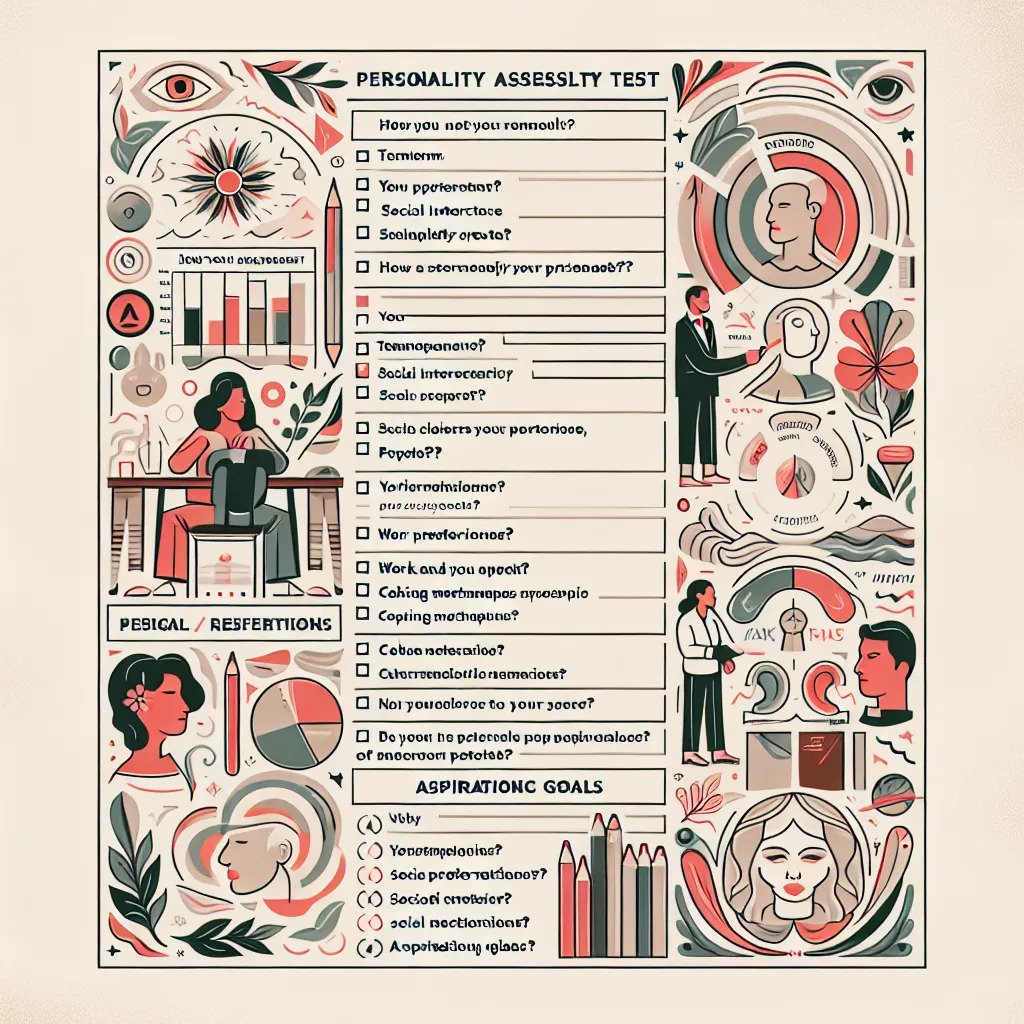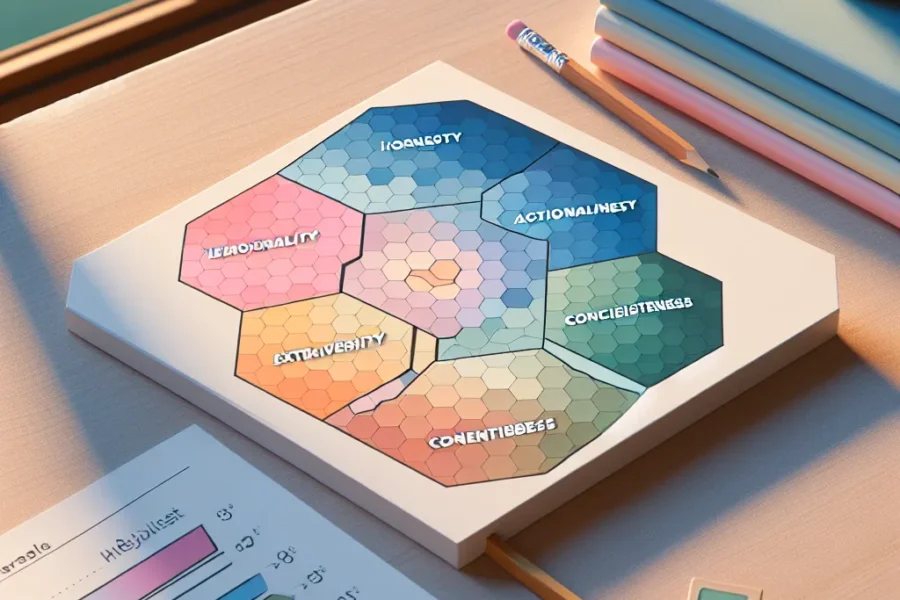If you’re looking to gain insight into your personality traits and leadership potential, the Hogan Personality Assessment is a well-respected tool used by many organizations around the world. It can help pinpoint your strengths and shortcomings, providing a clear understanding of how your personality might mesh with specific careers and workplaces. Those seeking an introduction to personality assessments might want to explore precisionpersonality.online, an incredibly accurate and free personality test, as a primer for the comprehensive evaluation offered by the Hogan Assessment.
Understanding the Hogan Assessment
The Hogan Assessment is a suite of tests designed to measure personality characteristics that influence an individual’s work performance and leadership style. Founded by psychologists Joyce and Robert Hogan, these assessments have become a staple in employee selection and development. The Hogan Assessment is divided into three main tests: the Hogan Personality Inventory (HPI), the Hogan Development Survey (HDS), and the Motives, Values, Preferences Inventory (MVPI).
Free Hogan Assessment Sample Questions
While complete practice tests are typically provided at a cost, you can still find free Hogan Assessment sample questions online to familiarize yourself with the types of questions you’ll encounter. These samples are perfect for giving you a sneak peek into the methodologies behind the assessment and help you prepare for the actual test-taking experience. However, keep in mind that these are merely previews and the full assessment will be more comprehensive.
Hogan Personality Inventory (HPI)
The HPI evaluates seven primary scales of personality that are predictive of job performance:
1. Adjustment: Measures self-confidence and composure under pressure.
2. Ambition: Assesses one’s initiative, competitiveness, and desire for leadership roles.
3. Sociability: Evaluates interpersonal skills and the tendency to seek social interaction.
4. Interpersonal Sensitivity: Measures tact, perception of social cues, and relationship-building skills.
5. Prudence: Relates to self-discipline, responsibility, and reliability.
6. Inquisitive: Assesses creativity, curiosity, and an interest in varied experiences.
7. Learning Approach: Evaluates the desire for new knowledge and experiences.
Sample Question:
Consider the following statement: “I handle stress well in critical situations.”
– Strongly disagree
– Disagree
– Neutral
– Agree
– Strongly agree
In this example, you’d select an answer that best represents your natural reaction to the stated scenario.
Hogan Development Survey (HDS)
The HDS identifies personality-based performance risks and derailers that could hinder work relationships, teamwork, and productivity.
1. Excitable: Measures emotional unpredictability.
2. Skeptical: Assesses mistrust and doubt.
3. Cautious: Evaluates the reluctance to take risks.
4. Reserved: Relates to social detachment and aloofness.
5. Leisurely: Assesses tendencies to resist work pressure.
6. Bold: Measures overconfidence and arrogance.
7. Mischievous: Evaluates tendencies to take risks and test limits.
8. Colorful: Measures a person’s need to be the center of attention.
9. Imaginative: Relates to creativity but can suggest impracticality.
10. Diligent: Assesses perfectionism and meticulousness.
11. Dutiful: Evaluates the need to please authority figures.
Sample Question:
Consider this statement: “I tend to be cautious and not take risks.”
– Strongly disagree
– Disagree
– Neutral
– Agree
– Strongly agree
Each of these choices will give insight into how you might potentially react when faced with risk-taking decisions in the workplace.
Motives, Values, Preferences Inventory (MVPI)
The MVPI predicts what motivates individuals to succeed, and what occupations and environments they might find most satisfying.
1. Recognition: The desire for attention, approval, and fame.
2. Power: The need for success, accomplishment, and control.
3. Hedonism: The pursuit of pleasure as a primary goal.
4. Altruistic: A focus on helping others and societal contributions.
5. Affiliation: The importance of belonging to groups or organizations.
6. Tradition: The preference for established routines and a stable environment.
7. Security: The need for predictability, structure, and order.
8. Commerce: The interest in money, profits, and business opportunities.
9. Aesthetics: The appreciation for art, nature, and beauty.
10. Science: The passion for knowledge, research, and technology.
Sample Question:
Reflect on this statement: “Being recognized for my accomplishments is very important to me.”
– Strongly disagree
– Disagree
– Neutral
– Agree
– Strongly agree
Your response to this statement will help identify the extent to which external recognition motivates your actions and choices.
Tips for Taking the Hogan Assessment
1. Be honest: The Hogan Assessment aims to get a genuine view of your personality. Answer honestly for the most accurate feedback.
2. Familiarize yourself with the format: Free sample questions can get you used to the format of the Hogan questions.
3. Don’t overthink: Your first instinct is often the most accurate reflection of your personality.
4. Get a good night’s sleep: Rest well before taking the assessment to ensure you’re at your best.
5. Practice good test-taking strategies: Manage your time appropriately and answer every question.
Importance of Hogan Assessment
Many corporations use the Hogan Assessment to make better hiring decisions, develop leaders, and ensure employees are positioned in roles that capitalize on their strengths. It’s a tool not just for employers but also for individuals who wish to understand themselves better and grow professionally.
While the actual test can come with a price tag, free Hogan assessment sample questions serve as an excellent starting point for anyone interested in self-improvement and career development. They can provide an initial understanding of what areas of your personality you may need to focus on, and what traits you can leverage as strengths in your professional life.
In conclusion, if you’re looking to advance your career, or if you’re an employer aiming to enhance organizational effectiveness, the Hogan Assessment can provide the insights needed for success. Begin with free sample questions to get a glimpse of the possibilities and prepare yourself for the journey of personal exploration and professional growth. Remember, alongside free resources like precisionpersonality.online, you can complement your understanding of personality assessments and utilize these tools to unlock your potential.



Leave a Comment